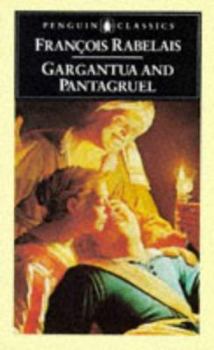La vie de Gargantua et de Pantagruel
(Part of the Gargantua and Pantagruel Series)
Select Format
Select Condition 
Book Overview
Customer Reviews
Rated 5 starsI thought I had a warped sense of humor
I discovered Rabelais while reading Durant's Story of Civilization. After reading such a strong endorsement I decided to get a copy of his works to see if he was really as good as was described. I've always had a somewhat different sense of humor (I love Monty Python), and have always liked satire; so I thought I would like Rabelais. It turns out I really liked him. Sometimes he was a bit crude for my tastes, but he was...
0Report
Rated 5 starsMuch fun
Gorgeously edited by Screech, this is an overwhelming joy to read, and well worth getting if you have any interest in Bakhtin.
0Report
Rated 5 starsFabulous
I was gonna compare this one to Don Quixote to see another reviewer beat me to it! Well I shall anyway.Both are one of the first examples of novels, both are extremely long, both are successful and funny satires of society (in this case of the 16th century) at large.The difference is this book is much less philosophical and more slapstick. It has less high concepts and more toilet jokes. But that's what I found great about...
0Report
Rated 5 starsMulti-faceted laugh-a-minute and dead serious
The praisers of Rabelais and this particular product he created have already expressed a lot of the truths to be found here, the exquisite style, the masterly satire. All they say is true and would be reason enough to read Gargantuan and Pentagruel. I won't repeat those laurels to affirm them. Instead, I'll suggest another reason a segment of readers might find Rabelais interesting. Followers of the Thelemic 'traditon'...
0Report
Rated 5 starsBroad, Common, Vulgar, Crass and Unspeakably Funny!
If you thought the vulgar humor in such films as PORKY'S and AMERICAN PIE was a modern phenomena, you're in for a shock: both are fairly mild in comparison with the works of Rabelais, which plumb the depths of human crassness in full Renaissance style. Writing before European authors had codified the novel as a form, Rabelais presents a series of very episodic tales about the adventures of the giant Gargantua, his son Pantagruel,...
0Report












